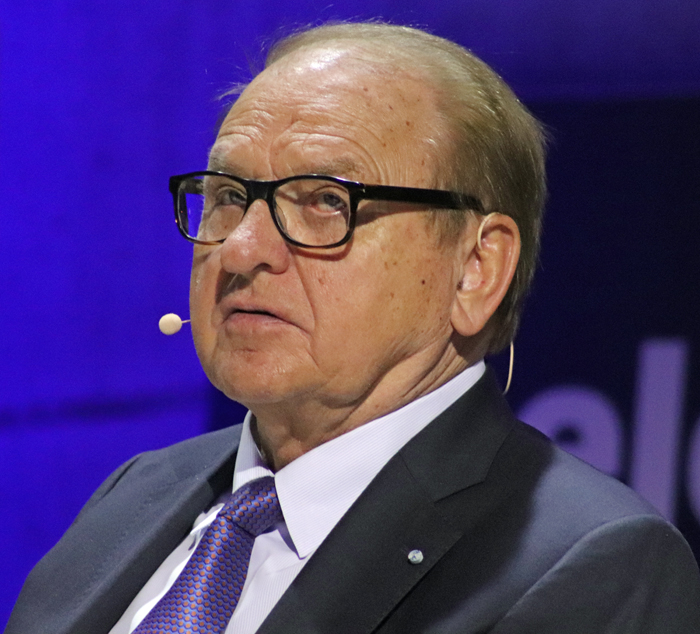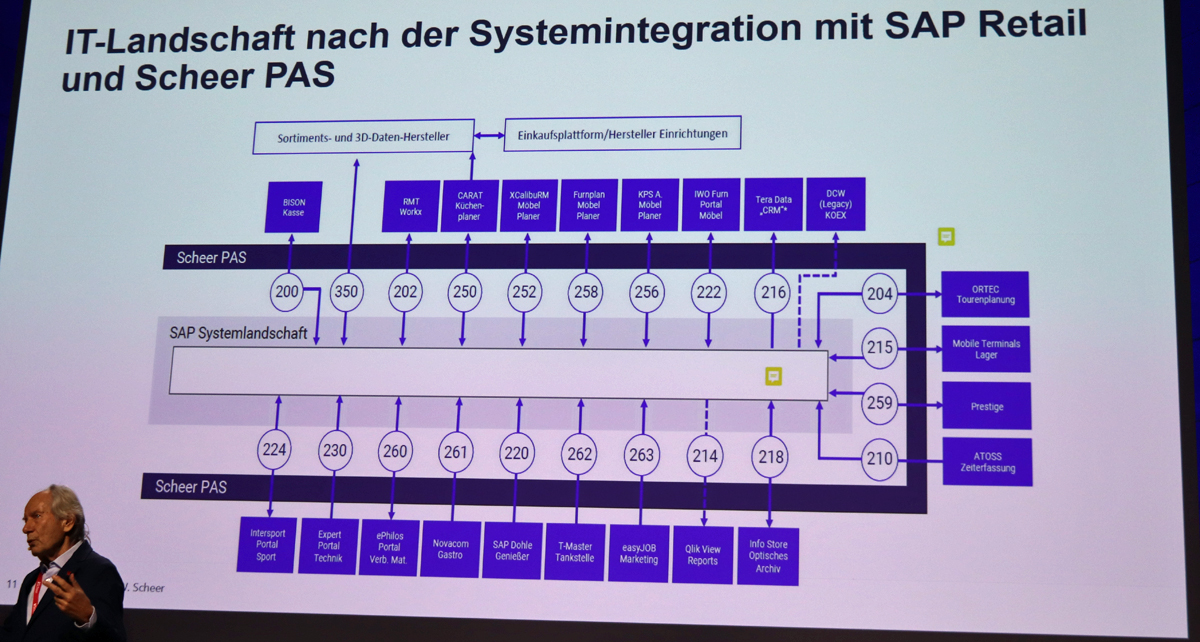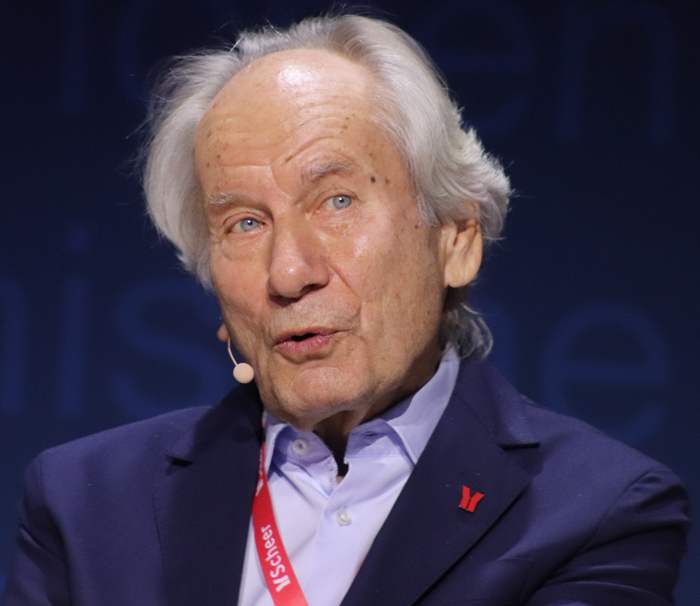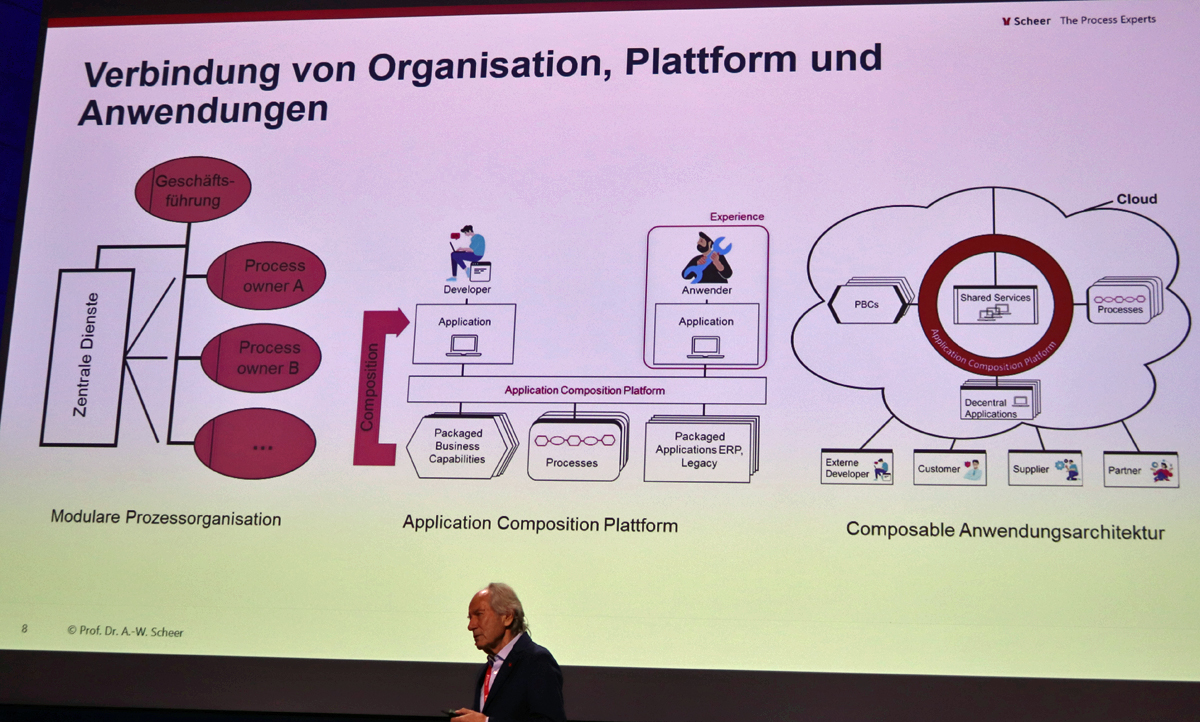30th Munich Management Colloquium
The Munich Management Colloquium (MMK) is the largest business congress in Germany. For 30 years now, it has been organized by Prof. Horst Wildemann and each year gathers the crème de la crème of industry managers, but also from politics, research and IT providers, at the Technical University of Munich to debate current trends and challenges.
At the 30th MMK on March 7 and 8, around 80 of the managers provided the material for the discussions with the audience. This year’s motto was: “Innovation – Sustainability – Resilience; Growth through new value models”. From ABB to BioNTech to Zeppelin, from large corporations to start-ups from the Technical University of Munich, from Microsoft to Dassault Systèmes, the decision-makers were on stage and in the audience.
The 31st Munich Management Colloquium will take place on March 5 and 6, 2024.

Prof. Horst Wildemann (Photo Sendler)
An inspiring and fitting conclusion
The closing keynote at the 30th Munich Management Colloquium was given by Prof. August-Wilhelm Scheer, the man who, back in the 1980s, charted the path also of industrial digitalization with his famous Y-model of process integration. With a focus on the increasing integration of business processes and their support by IT.
Now his very inspiring talk was titled: “Agile, Flexible, Self-Sufficient – Is the Composable Enterprise the Game-Changer for IT?” And it could happen that he is just pointing again to the direction in which enterprise software will change very fundamentally in the next few years.
The analyst firm Gartner presented the study “Future of Applications: Delivering the Composable Enterprise” in February 2020. At its core is the assessment it formulates for the coming years:
“The applications of the future will be based on democratized self-service integration: In the “Composable Enterprise”, development and integration will be combined to enable ubiquitous compilation of customized applications.”
Modular, flexible, “composable”
Prof. Scheer referred to the study and explained that a “Composable Enterprise” not only has to be modular and to have largely self-sufficient processes. Of course, the enterprise software used would then also have to be just as easily adapted and flexibly interoperable. This is not possible with monolithic systems as in the past. And the direct interfaces that have been common up to now are not sufficient for this either. In the future, the interaction and data communication between applications will be determined by the quality and reliability of their application programming interfaces (API).
The Scheer Group has developed a new product for this and – true to the motto of the Composable Enterprise – created its own organization Scheer PAS. Its offering: the Process Automation & Integration Platform. With its own low-code tool, this platform allows customers to connect a wide variety of applications, which Gartner calls “Packaged Business Capabilities (PCB)”, via their APIs.
As a very clear example, Prof. Scheer showed how the IT landscape at the online store Dodenhof, with two locations in northern Germany, looked before the use of the Scheer PAS Platform, and how it looked afterwards.

Before integration with Scheer PAS, a confusing, cluttered scenario (photo Sendler).
Previously, this IT landscape was a network of locations, Internet stores and marketplaces that was almost impossible to untangle, even on the surface, with five merchandise management systems alone, a checkout system and various special systems that – where necessary – were linked to each other via point-to-point connections. This picture alone makes it possible to imagine the enormous effort that this IT meant for the company. And even if there might be a bit more diversity of systems in retail – every industrial company can probably immediately draw the comparison to its own IT when customers, suppliers and all core processes are taken into account.

System landscape organized with Scheer PAS Platform (photo Sendler)
The picture after the integration with Scheer PAS suddenly makes it clear what extreme simplification the conversion of the entire landscape into a “Composable Application Architecture” entails. Here, for online commerce, the SAP system landscape is at the center and all other applications are coupled with Scheer PAS via APIs. Loosely linked, interchangeable at any time. You can guess: the effort is in the conversion of the architecture, after which management becomes much easier.
Incidentally, Prof. Scheer entered into a strategic partnership with Prof. Friedhelm Loh last year in order to anchor this new architecture in the industry. This is a very good example of how decades of very successful experience can be bundled and made available for future orientation.


